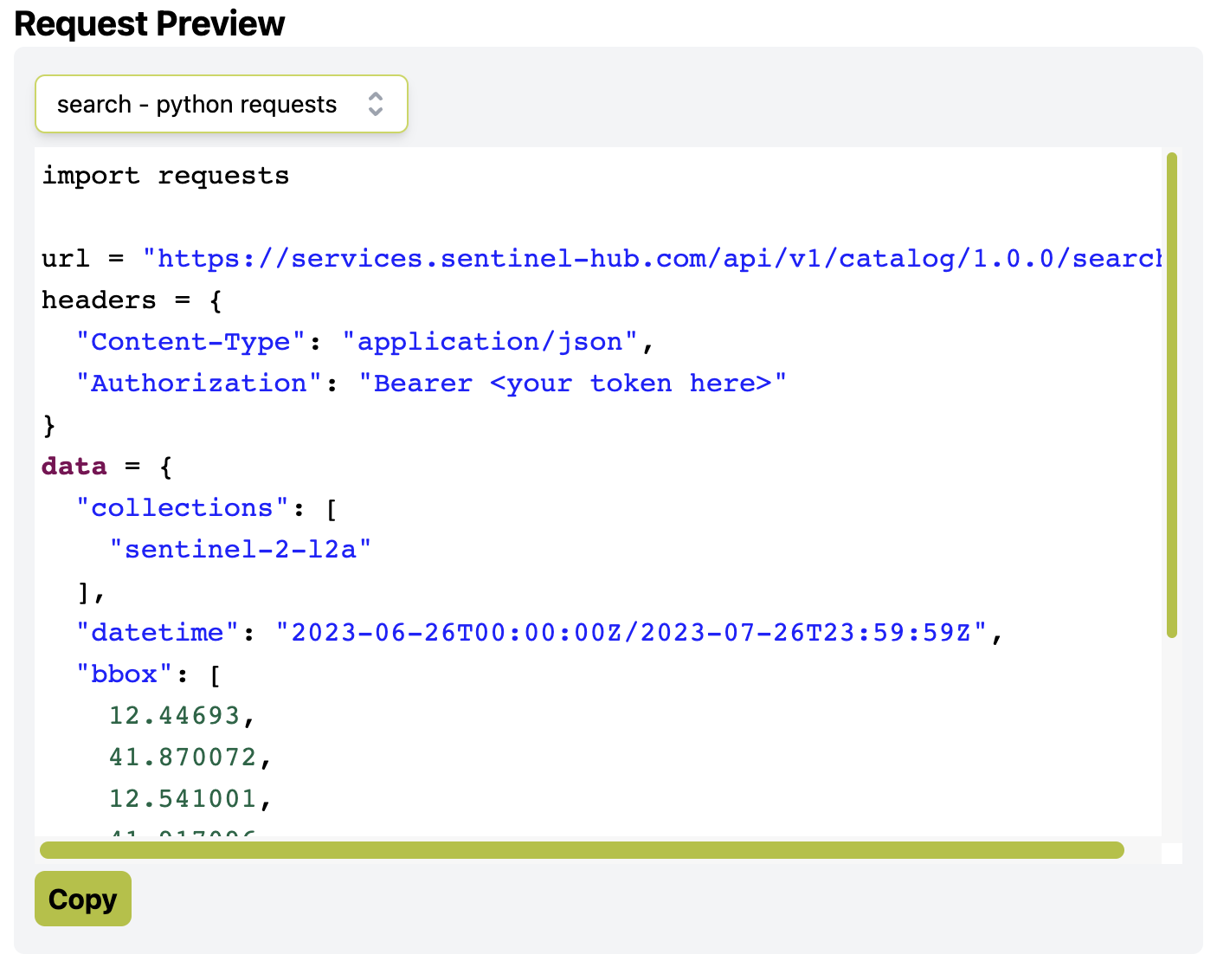Hello,
When I do a call to the process API, I can get the number of processing units using the following method:
request = SentinelHubRequest()
response = request[“request”].get_data(decode_data=False,save_data=True)
processing_units = response[0].headers[“x-processingunits-spent”]
Can I do something similar for the catalog API? Currently, I am assuming that each processing unit is 0.01 PUs per the following forum topic:
Hi, I wonder what is the pricing for Catalog requests. I can’t find it anywhere. It seems that our number-of-requests limit apply to them the same way as to the other (e.g. OGC) requests, despite there is no data processing involved? Am I correct? Also, how processing units are calculated for Catalog requests? Thanks a lot!
Thanks in advance.


